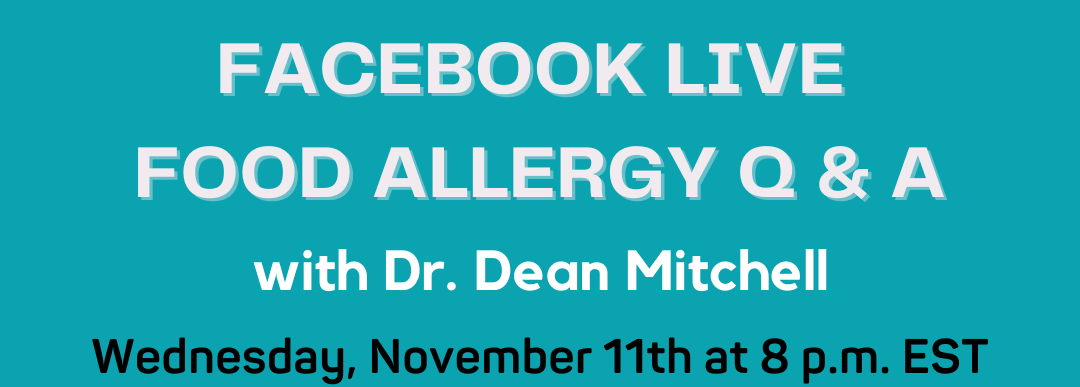Why Benadryl Doesn’t Work for Angioedema | How to Reduce Angiodema Swelling

This site contains affiliate links to products. We may receive a commission for purchases made through these links.
[blog updated April 2019]
JOIN DR. MITCHELL ON NOVEMBER 11TH FOR A FACEBOOK LIVE EVENT TO DISCUSS FOOD ALLERGIES!
Don’t miss this chance to speak with food allergy expert Dr. Dean Mitchell as he talks about life with food allergies and discusses causes, treatments and prevention of food allergies.
Benadryl is the most widely used antihistamine for treating allergic reactions. It does have a long record of safety and it has a rapid onset of action. But, is it the proper treatment for angioedema?
What Is Angioedema?
Angioedema is the medical term for swelling of connective tissue in the body which is readily apparent on the skin but can occur in the respiratory system and the intestines. Angioedema is usually lumped together with hives or urticaria, a mosquito bite like a rash that is more superficial than Angioedema. Urticaria does respond to antihistamines like Benadryl and other over the counter medications such as Claritin, Allegra, and Zyrtec. However, because angioedema takes place at a deeper level it does not typically respond well to Benadryl.

The classic presentation of angioedema is portrayed in the movie Hitch which came out several years ago starring Will Smith. Smith apparently eats shellfish that he is allergic to and his eyelids swell up the size of golf balls. He runs into the pharmacy and starts guzzling liquid Benadryl and apparently gets better quickly – within hours. In real life, this would not be the case. I’ve seen many times a patient who treated themselves with Benadryl and the swelling continued for several days.
Treating Angioedema | Know the Causes of Angioedema
It is important to find out what caused the Angioedema so it doesn’t reoccur. The common causes of Angioedema are:
- Foods:
Peanut, tree nuts, shellfish – the high protein foods are the most common but any food can cause an allergy, and I remind my patients it can be a food you had to eat on a regular basis and then one day you develop an allergic reaction. - Drugs:
Certain classes of drugs are more common triggers of angioedema – antihypertensive medications called ACE inhibitors are the first-line treatment and commonly prescribed. The over the counter pain medications ibuprofen is also a leading cause of angioedema in susceptible patients. - Medical conditions:
Hypothyroidism, where the thyroid is sluggish, can cause eyelid angioedema, as can chronic kidney disease due to loss of protein. - Hereditary conditions:
Hereditary angioedema is a rare type of angioedema that runs in families that is autosomal dominant – meaning you only need one gene to develop the disease; the biggest danger with this type of angioedema is that the throat will close off in an attack and cause asphyxia.
The best treatment for allergic angioedema is an oral corticosteroid such as prednisone or Medrol; it usually needs to be taken for a few days and then a patient should see an allergy specialist for an in-depth evaluation.
Why Benadryl Isn’t the Optimal Choice for Allergic Reactions
– Dr. Dean Mitchell M.D.
Mitchell Medical Group in NYC & Long Island
About the Author – Dr. Dean Mitchell, M.D.
Dr. Dean Mitchell M.D. is a Board-Certified Allergist and Immunologist based out of NYC. He graduated from the Sackler School of Medicine and completed training at the Robert Cooke Allergy Institute in New York City. He is also a Clinical Assistant Professor of Clinical Immunology at Touro College of Osteopathic Medicine, a fellow of the American Academy of Allergy, Asthma and Immunology, and the author of Allergy and Asthma Solution: The Ultimate Program for Reversing Your Symptoms One Drop at a Time. Dr. Dean Mitchell, M.D. has also been featured in The New York Times, The Huffington Post, Fitness Magazine, Dr. Oz and News NY 1. Dr. Mitchell also hosts the podcast The Smartest Doctor in the Room – a combination of a lively, personal and in-depth interview with top healthcare specialists.


